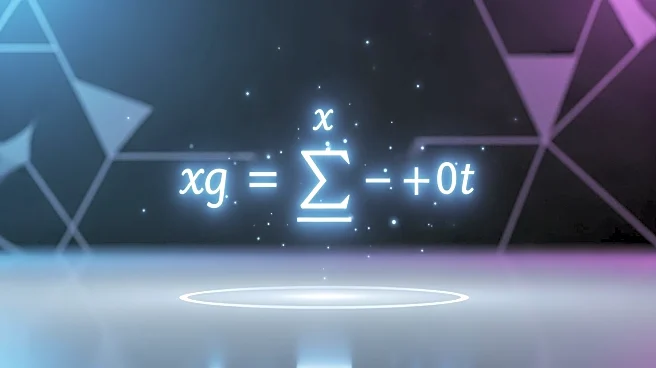What's Happening?
A recent study published in the International Journal of Mathematical Education in Science and Technology explores the capabilities of ChatGPT in solving a 2,400-year-old mathematical problem, originally posed by the Greek philosopher Socrates. The problem involves
doubling the area of a square, a task that requires understanding geometric principles. The study, led by Dr. Nadav Marco from the Hebrew University of Jerusalem and Professor Andreas Stylianides from Cambridge, aimed to determine whether ChatGPT could solve the problem using reasoning similar to human thought processes. The researchers found that ChatGPT, trained on text rather than images, attempted to solve the problem by improvising, similar to a human learner. However, it made a mistake akin to the one made by Socrates' student, incorrectly stating that the diagonal of the square could not be used for the solution.
Why It's Important?
This study is significant as it sheds light on the capabilities and limitations of large language models (LLMs) like ChatGPT in mimicking human reasoning. The findings suggest that while ChatGPT can engage in problem-solving processes, it still lacks the innate understanding that humans possess, relying instead on data-driven improvisation. This has implications for the development of AI technologies, particularly in fields that require complex reasoning and decision-making. The study also contributes to the ongoing debate about whether mathematical reasoning is an innate human ability or a learned skill, with potential impacts on educational approaches and AI development strategies.
What's Next?
The study's findings may prompt further research into improving AI's reasoning capabilities, potentially leading to advancements in AI education tools and applications. Developers might focus on enhancing AI's ability to understand and apply geometric and mathematical principles more accurately. Additionally, the study could influence how educational institutions integrate AI into learning environments, emphasizing the need for AI to complement rather than replace human reasoning skills.
Beyond the Headlines
The exploration of AI's reasoning abilities touches on broader ethical and philosophical questions about the nature of intelligence and learning. As AI continues to evolve, understanding its limitations and potential is crucial for ensuring that it serves as a beneficial tool for society. The study also highlights the importance of interdisciplinary collaboration in AI research, combining insights from mathematics, education, and computer science to advance the field.
















